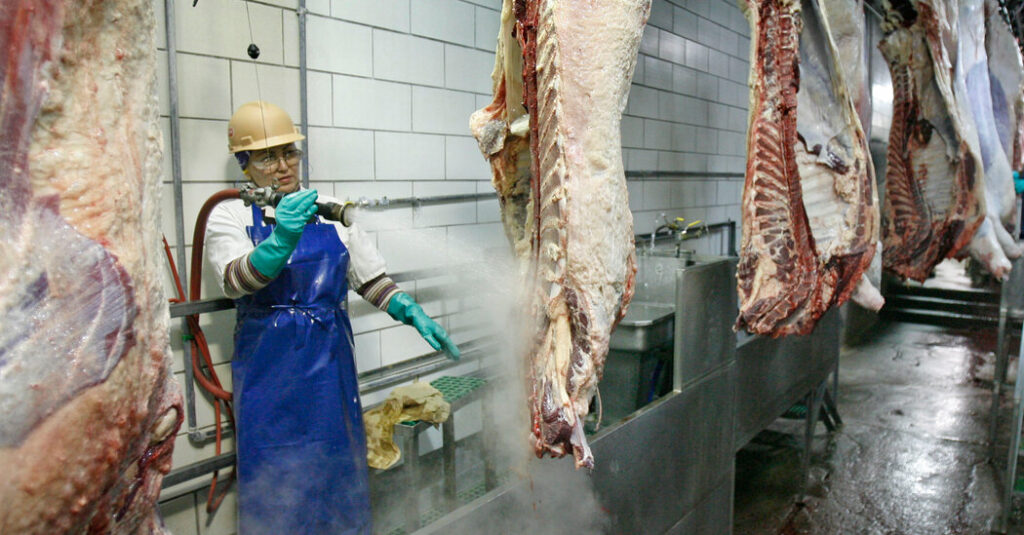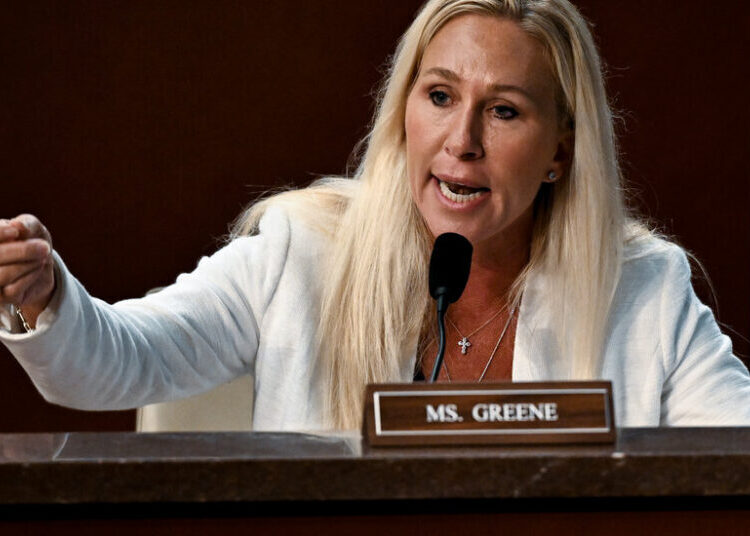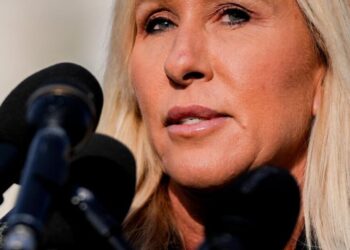Tyson Foods, the American meat industry titan, said on Friday that it would close down a major beef processing plant in Nebraska, as the United States faces high beef prices and its lowest cattle inventory in decades.
The facility, in Lexington, employs more than 3,000 people. Tyson also announced that its beef facility in Amarillo, Texas, would go down to one shift a day.
The changes are “designed to right-size its beef business and position it for long-term success,” the company said in a statement. To meet customer demand, Tyson said, it will increase production at other beef facilities.
“With these changes, Tyson Foods is ensuring that it will continue to deliver high-quality, affordable and nutritious protein for generations to come,” the statement said. It added that the company would help affected employees apply for jobs at other facilities and provide relocation benefits.
Lexington, which is about 170 miles west of Lincoln, Neb., had a population of about 10,000 in 2023, according to census data. The plant is expected to close in January.
On an earnings call this month, the company, one of the big four meatpackers in the United States, said it expected operating losses between $400 million and $600 million on beef in the next fiscal year.
“As anticipated, the beef segment remains our only soft spot,” Donnie King, the chief executive of Tyson, said on the call with analysts. “Cattle supplies are at record lows due to drought, potential herd rebuilding and the impact of New World screwworm in Mexico,” he added, referring to an invasive fly.
Tyson produces one-fifth of chicken, beef and pork in the United States, according to its website.
JBS, another major meatpacker, said in its earnings call this month that “the industry continues to navigate a challenging cattle cycle, with limited cattle availability for processing.”
“With cattle supplies at historically low levels, live cattle prices have remained high, pressuring profitability,” it added.
Washington is adding to the pressure. This month, President Trump accused the country’s largest meatpacking companies of artificially inflating prices and threatening the country’s food supply, and he directed the Department of Justice to investigate.
A White House news release named Tyson, JBS, Cargill and National Beef as targets of the investigation. The companies slaughter 85 percent of the country’s cattle and a majority of its hogs.
A pound of ground beef cost $6.32 in September, according to the Bureau of Labor Statistics, an increase of 11 percent from a year earlier. The number of beef cattle in the United States is down to 27.9 million, a 13 percent decline since 2019, and the overall cattle inventory is the lowest it has been since 1952, according to the Agriculture Department. Consumer demand has remained steady in recent years.
Mr. Trump last week lifted tariffs on beef imports in a bid to increase supply and drive down retail beef prices. In October, he said he was considering buying beef from Argentina to shore up U.S. supplies and lower costs.
Despite challenges, “we are strengthening our fundamentals by prioritizing efficiency, reducing cost and introducing innovative products,” Mr. King said on the call this month. “This positions us to emerge stronger in beef when market conditions improve.”
Kevin Draper contributed reporting.
Emmett Lindner is a business reporter for The Times.
The post Tyson Foods to Shut Major Beef Facility in Nebraska appeared first on New York Times.




